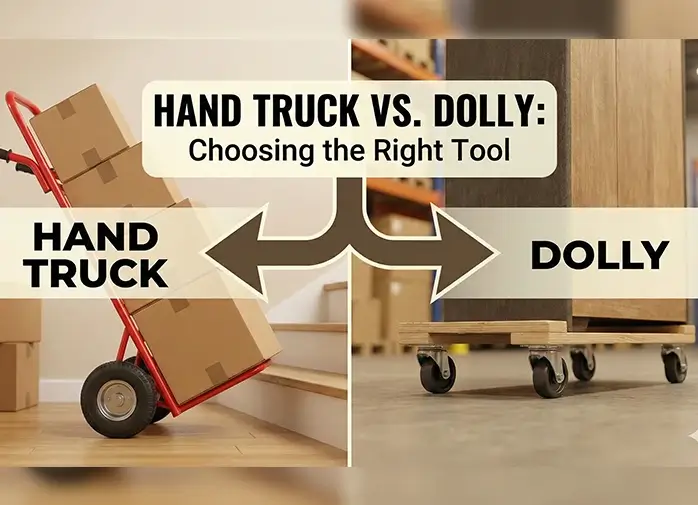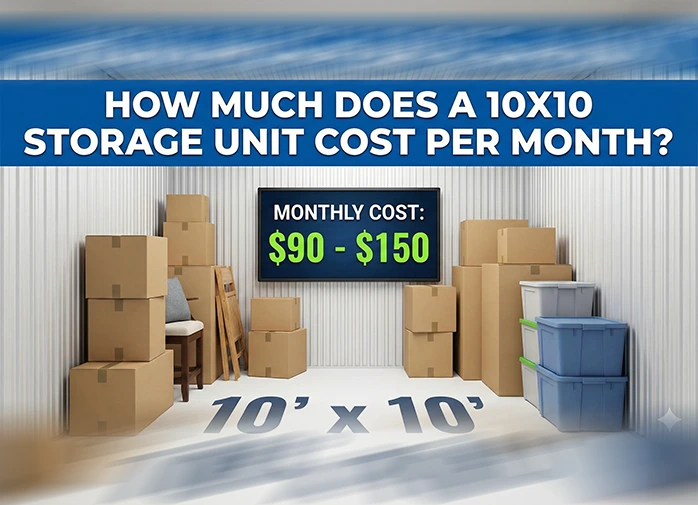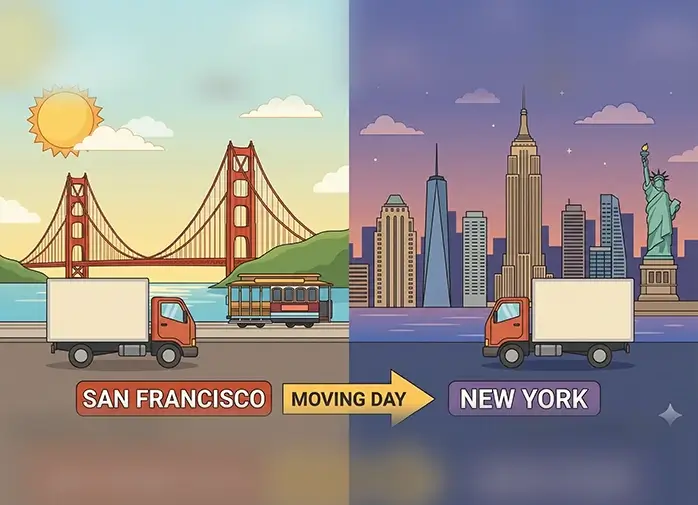Best Time of Day to Move

Moving is an exciting journey but can also be stressful if not planned properly. One key factor that can significantly impact the efficiency and ease of your move is the time of day you choose to relocate. Many people wonder “When is the best time to relocate?”
The answer isn’t as straightforward as just choosing morning, afternoon, or night - it depends on several factors such as weather, traffic, and personal schedules.
In this blog, we will break down the best time of day to move, share tips for a seamless moving experience, and highlight common mistakes to avoid.
Why Does Timing Matter When Moving?
The time you choose to move can impact everything from stress levels to overall efficiency. Moving at an inconvenient time can lead to:
- Increased traffic delays
- Longer moving hours
- Higher costs due to demand
- Fatigue and exhaustion
- More difficult weather conditions
Choosing the right time of day ensures a smooth, fast, and stress-free relocation.
When Is The Best Time To Move?
Each time of the day has its advantages and drawbacks. Let’s learn them in detail.
1. Early Morning (7 AM - 10 AM): The Best Choice
Most moving experts agree that early morning is the best time to move. Here’s why:
- Cooler temperatures: Morning moves help you avoid the midday heat, which is especially useful in summer.
- Less traffic: Fewer cars on the road means a quicker trip to your new home.
- Fresh energy levels: You and your movers will be well-rested and ready to work efficiently.
- Fewer delays: Starting early gives you a full day to complete the move, reducing the risk of running out of daylight.
2. Midday (10 AM - 2 PM): A Secondary Option
If you can’t move in the early morning, midday is your next best bet. However, it comes with some challenges:
- Warmer temperatures: By noon, the sun is at its peak, making physical labor more exhausting.
- Increased traffic: Urban areas tend to see more traffic around lunchtime.
- Longer wait times for movers: If movers had an earlier job, they might arrive later than expected.
3. Late Afternoon (2 PM - 6 PM): Less Ideal
Afternoon moves can work in some cases, but they are not ideal. Here’s why:
- Rush hour traffic: Moving during this time means dealing with commuters, which can delay your trip.
- Exhaustion sets in: Movers and helpers may already be tired from previous jobs.
- Limited daylight: If your move takes longer than expected, you may have to finish in the dark.
4. Nighttime (After 6 PM): Least Recommended
While moving at night might seem like a good way to avoid traffic, it has significant drawbacks:
- Poor visibility: Loading and unloading in the dark increases the risk of accidents.
- Higher safety risks: Unfamiliar neighborhoods at night can pose security concerns.
- Mover availability: Most professional moving companies do not offer nighttime services, meaning you may need to rely on DIY moving.
Expert Advice: If you're planning to move at the best time of day, hiring movers in advance can make all the difference. At Van Line Move, we provide top-notch moving services across the USA. Additionally, we feature a range of professional movers on our website, so if you're having trouble finding the best fit for your specific timeframe, you can easily compare quotes.
How to Prepare for a Well-Timed Move?
A successful move isn't just about picking the best time to move - it’s also about preparation. If you don’t plan, even moving at the ideal time can become stressful. Below are some key steps to ensure your move goes as smoothly as possible.
1. Create a Moving Checklist to Stay Organized
A moving checklist is essential for keeping track of everything you need to do before, during, and after the move. Having a structured plan prevents last-minute stress and forgotten tasks.
Starting this checklist at least 4–6 weeks in advance will help ensure you don’t overlook any crucial steps.
2. Pack in Advance
Packing can take longer than expected, so don’t leave it for the night before your move. Here’s how to pack efficiently:
- Start early
- Use a labeling system
- Pack essentials separately
- Declutter before packing
- Use proper packing materials
3. Hire Movers Early to Secure the Best Time Slot
If you’re hiring professional movers, book them as early as possible, especially if you’re moving during peak seasons (summer, weekends, or end-of-month).
- Compare multiple moving companies
- Ask about availability
- Confirm the details
- Check reviews
4. Check Weather & Traffic Reports Before Moving Day
- Monitor the weather forecast - If rain or snow is predicted, prepare with waterproof coverings and extra protective gear.
- Plan your route - check for road closures, construction, or peak traffic times.
- Have a backup plan - If weather conditions are severe, consider rescheduling or renting climate-controlled storage if needed.
- Start early - Even if your move is scheduled for the morning, an unexpected traffic jam can delay things, so be prepared to leave earlier if necessary.
Common Mistakes to Avoid
Even with the best planning, many people make mistakes that delay their move or make it unnecessarily stressful. Here’s what to avoid:
1. Underestimating Travel Time
Many people miscalculate how long it will take to transport their belongings.
- Movers may take longer than expected to load and unload.
- Traffic or road work can delay your trip.
- Moving large items (like furniture) may require disassembly and reassembly, adding extra time.
Add an extra 1-2 hours of buffer time into your schedule. If your move is long-distance, factor in rest stops and potential delays.
2. Not Reserving Movers Early Enough
Professional moving companies get booked quickly, especially during peak seasons.
- Waiting until the last minute could mean higher costs or no availability at all.
Book your movers at least 4-6 weeks in advance to secure your preferred time slot.
3. Moving During Peak Hours
Rush hour can significantly slow down your move.
- Sitting in traffic wastes valuable time and increases fuel costs.
- Movers may charge extra if the move takes longer than planned.
Schedule your move between 7-10 AM to avoid heavy traffic.
4. Ignoring Weather Conditions
Moving in extreme weather conditions can be hazardous and cause damage to your belongings.
- Moving in the rain can make boxes soggy and slippery, increasing the risk of dropping items.
- Snow and ice can make moving conditions slow.
If moving in bad weather is unavoidable, cover furniture and boxes with waterproof tarps, wear appropriate footwear and use extra caution.
5. Forgetting to Prepare for Delays
Unexpected obstacles such as elevator wait times when moving into an apartment building or difficulty fitting furniture through doorways can cause significant delays.
- If you’re renting a moving truck, delays might result in extra rental charges.
- Some buildings have time restrictions on when you can move in.
Call ahead to check apartment move-in rules, elevator reservations, and parking arrangements to avoid unexpected setbacks.
So, when is the best time to move? If possible, plan your move for early morning on a weekday during spring or fall. This will ensure a faster, safer, and more efficient relocation.
Categories
- Long Distance Moving154
- Local Moving120
- Commercial Moving40
- Residential Moving34
- Last – Minute Moving25
- Moving Tips & Lifestyle10
- Furniture Moving9
- Moving Tips & How-To Guides8
- Moving services7
- Moving Cost5
- Moving Cost Calculator5
- Moving Costs & Budgeting5
- moving tips4
- state to state movers4
- Piano Moving3
- Car Transportation3
- Truck Rental3
- Local Move3
- Moving companies3
- best moving rates3
- cheap moving companies3
- affordable moving companies3
- full-service movers3
- Moving3
- Moving Tips3
- Moving Cost Guides3
- Moving Tips & Planning3
- Junk Removal2
- Moving Container2
- Senior Moving2
- Senior Relocation Moving Companies2
- Moving Tools2
- Moving Estimates2
- interstate moving2
- College Moving2
- Dorm Moving2
- Tips for moving2
- cross-country move2
- International moving2
- Household moving2
- Relocation Guide2
- Moving Tips & State Guides2
- Heavy Equipment1
- Senior Moving Services1
- office moving1
- office relocation1
- employee relocation1
- Car Transport1
- Vehicle Shipping1
- Car Shipping Services1
- Artificial Intelligence1
- Office Moving Services1
- Commercial Moving Companies1
- Corporate Moving Services1
- Corporate Movers1
- full-service moving companies1
- sustainable moving companies1
- green movers1
- Moving in US1
- Best places to move in 20251
- 2025 moving1
- Full-Service Moving Companies1
- College moving services1
- Moving to College1
- Moving Season1
- Spring Moving1
- donate1
- sell1
- Movers in California1
- Movers in Studio City1
- Moving to California1
- Laws about Moving into California1
- Moving Laws1
- House moving1
- packing1
- cheap moving ways1
- Moving guide1
- moving across countries1
- international relocation program1
- move out cleaning1
- right packing supplies1
- pack while moving1
- Apartment moving1
- PODS1
- moving out1
- state to state move1
- California movers1
- Truck Rental1
- US Territory Relocation1
- International Moving1
- Long-Distance Moving1
- Shipping & Moving Tips1
- Moving Budget Guide1
- Relocation Guides & Incentives1
- Moving Tools & Equipment Guides1
- Moving Services & Options1
- Moving Tips & How-To Guides1
- Moving Day & Settling In1
- Mobile Home Moving1
- Moving Guide & Tips1
- Moving Tips & State Comparisons1
- Moving Tips & City Guides1
- Moving Tips & Cost Guides1
- Long-Distance Moving Tips1
- Moving Tips & Financial Planning1
- Moving Tips & Home Preparation1
- Vehicle Shipping & Auto Transport1
- Marketing & Lead Generation1
- International Moving Guides1
- Moving Costs1
- San Francisco Moving Guide1
- NYC Moving1
- Local Movers1
- Budget Moving1
- Student Moving1
- Affordable Moving1
- Specialty Moving Guides1
- Local & Long-Distance Moving1
- Boston Moving Guide1
- Europe Relocation Guide1
- Moving Costs & Specialty Moving1
- Cost of Living1
- Relocation1
- International Moving1
- Moving Guides1
- Lifestyle & Relocation1
- State Guides1
- Home Buying Guide1
- Moving Timeline1
- Real Estate Tips1
- Appliance Moving1
- Packing & Preparation1
- Interstate Relocation1
- City-to-City Moving Guide1
- Technology for Movers1
- Moving Costs & Storage1
- Moving Tips & Equipment Guides1
Archives
Recent posts
-

Hand Truck vs Dolly: Which One Is Better for Moving and Heavy Lifting?
January 2026 -

How Much Does a 10×10 Storage Unit Cost Per Month? (2026 Guide)
January 2026 -
.webp)
5 Best Apps That Help You Move | Moving Apps You Should Use
January 2026 -

Moving From San Francisco to New York: Complete Cross-Country Moving Guide
January 2026

 Local Movers
Local Movers Last-Minute Movers
Last-Minute Movers Junk Removal
Junk Removal Long Distance Movers
Long Distance Movers Piano Movers
Piano Movers Heavy Equipment
Heavy Equipment Commercial Movers
Commercial Movers Moving Container
Moving Container Car Transportation
Car Transportation Furniture Movers
Furniture Movers Truck Rental
Truck Rental Moving Cost Calculator
Moving Cost Calculator Moving Planner
Moving Planner Packing Calculator
Packing Calculator Moving Checklist
Moving Checklist Moving Insurance
Moving Insurance FAQ
FAQ Contact Us
Contact Us Moving Loan
Moving Loan About Us
About Us







